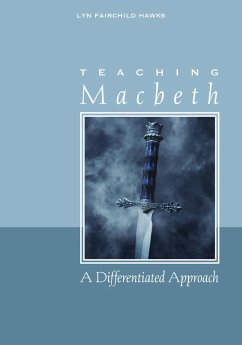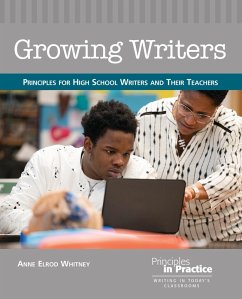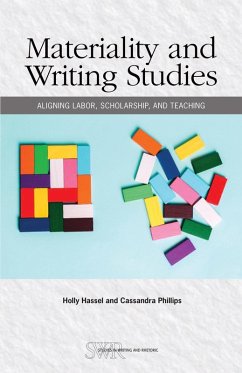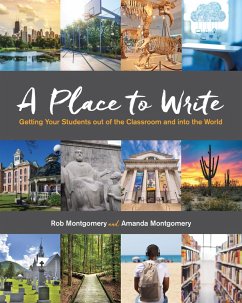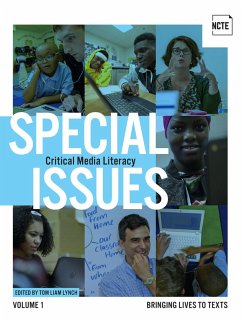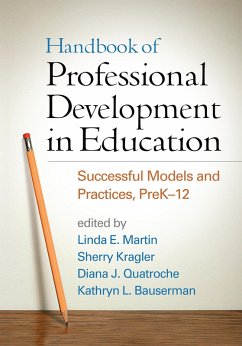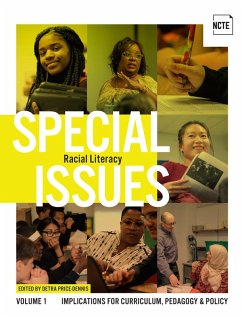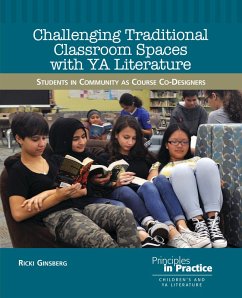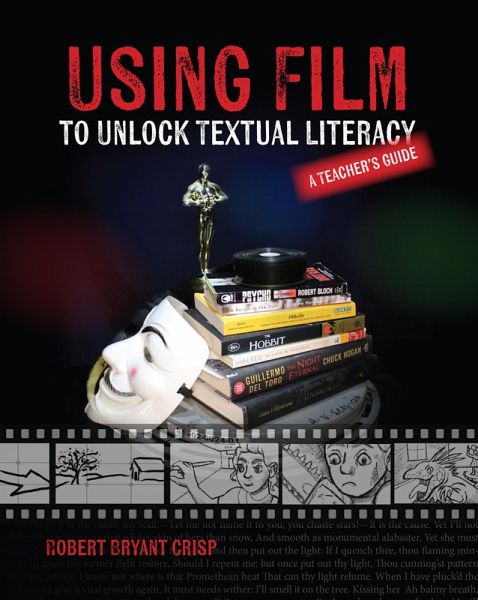
Using Film to Unlock Textual Literacy (eBook, ePUB)
Versandkostenfrei!
Sofort per Download lieferbar
17,95 €
inkl. MwSt.
Weitere Ausgaben:

PAYBACK Punkte
9 °P sammeln!
In Using Film to Unlock Textual Literacy: A Teacher's Guide, Robert Bryant Crisp explores strategies for using film study and filmmaking to help students engage in entirely new ways with both print and digital texts.Struggling to help students engage with print texts? Looking for ways to help them learn to analyze texts deeply in a hands-on, differentiated, and real-world environment? High school teacher Robert Bryant Crisp explores how film can be read in much the same way as print textsand can be every bit as rewarding. We are surrounded by screens, and we understand film viscerally. It's a ...
In Using Film to Unlock Textual Literacy: A Teacher's Guide, Robert Bryant Crisp explores strategies for using film study and filmmaking to help students engage in entirely new ways with both print and digital texts.
Struggling to help students engage with print texts?
Looking for ways to help them learn to analyze texts deeply in a hands-on, differentiated, and real-world environment?
High school teacher Robert Bryant Crisp explores how film can be read in much the same way as print textsand can be every bit as rewarding. We are surrounded by screens, and we understand film viscerally. It's a language we all comprehend, from which we can make meaning, even when we may not understand the technical aspects of how that process happens. And telling stories via the medium of film requires every bit of the forethought and intent that constructing print text requires.
From basic team building, storyboarding, and filming-with-your-phone-camera activities to deeper dives into adapting texts, making directorial choices, and guiding audience response through texts, Crisp proves that you can teach film study even without specialized training.
Texts incorporated into lessons include: Casey at the Bat, 42, E. T., Everyday Use, Othello, Edward Scissorhands, The Cremation of Sam McGee, Unbroken, and more. Resources include a list of film vocabulary, observation charts and rubrics, storyboard templates, and sample film technique assessments.
Struggling to help students engage with print texts?
Looking for ways to help them learn to analyze texts deeply in a hands-on, differentiated, and real-world environment?
High school teacher Robert Bryant Crisp explores how film can be read in much the same way as print textsand can be every bit as rewarding. We are surrounded by screens, and we understand film viscerally. It's a language we all comprehend, from which we can make meaning, even when we may not understand the technical aspects of how that process happens. And telling stories via the medium of film requires every bit of the forethought and intent that constructing print text requires.
From basic team building, storyboarding, and filming-with-your-phone-camera activities to deeper dives into adapting texts, making directorial choices, and guiding audience response through texts, Crisp proves that you can teach film study even without specialized training.
Texts incorporated into lessons include: Casey at the Bat, 42, E. T., Everyday Use, Othello, Edward Scissorhands, The Cremation of Sam McGee, Unbroken, and more. Resources include a list of film vocabulary, observation charts and rubrics, storyboard templates, and sample film technique assessments.
Dieser Download kann aus rechtlichen Gründen nur mit Rechnungsadresse in A, D ausgeliefert werden.




